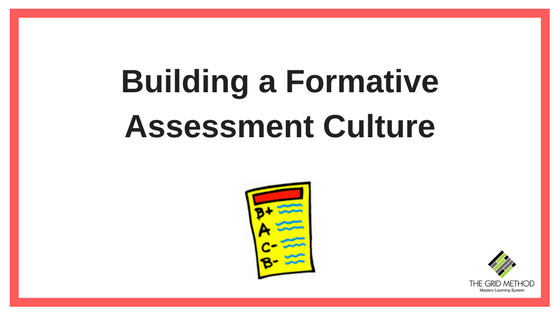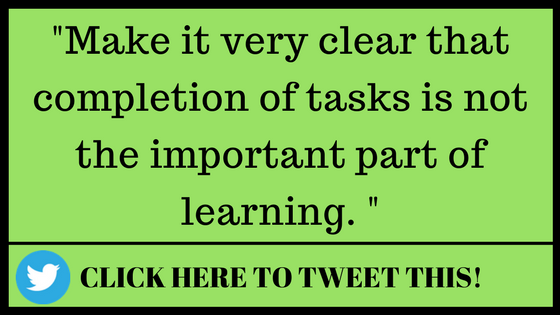Assessment is a great tool.
Assessment, whether summative or formative, is the single best way to measure student understanding. In the world of “state tests” assessment has gotten a pretty bad rap, and this is dangerous, because building formative assessment in to your instruction more often can transform your classroom.
By constantly assessing students we can measure their understanding, misconceptions, and mastery of content in real-time. This can then allow you to make the shift to a more personalized learning experience for your students. While assessment can be powerful, sometimes it can create anxiety for students. This is why building a positive assessment culture is important.
Here are a 3 things you can do to make your assessment culture more positive.
1. Make Assessment an Opportunity:
This sounds simple, but so often assessment is seen as the end-all be-all of instruction. For students this is what can make it scary. If you change the perception of assessment to an opportunity to show what you know, and phrase it this way with your learners, it can drastically improve their view of it.
Another opportunity this can create is for students to demonstrate readiness for the next step, or experience in learning. If the focus is on knowledge over the assessment itself, the conversation can change.
For example: if a student is apprehensive about being assessed, you might say, “I just need to make sure you’re ready for the next activity we’re about to do, and if you’re not, I want to find out how to get you ready.” This helps frame the assessment as an opportunity as opposed to the end of a process.
2. Make Assessment A Regular Occurrence:
In Mastery Learning, assessment becomes a regular part of the learning cycle and is constantly occurring. Even if you’re not using Mastery Learning, you can make this happen. Make it very clear that completion of tasks is not the important part of learning. Instead, what you take away or understand as a result of completing those tasks is what matters.
With this mindset, the learner showing mastery becomes the most important part of the cycle, not the tasks. Every time a student finishes a task they should be assessed on what they got from that task. If students fully understand that they will be responsible for showing understanding of tasks in your classroom, they will focus more while completing the task, and it will become more “normal” for them. This will also reduce anxiety and help them get used to the instructional cycle, including assessment.
3. Let Them Fail and Try Again:
This is discussed in depth at our workshops and remains one of the most important parts of building a positive culture of assessment in any classroom. You should allow students to assess multiple times. This will remove the fear of failure and allow them to struggle with the material as needed. This will also help maintain the expectation of mastery. The simple concept of “re-takes” also changes the conversation from “you don’t know this” to “you don’t know this yet.” That is a powerful shift that can remove anxiety from assessment and increase the positive process of assessment in your classroom.
By making a few changes to the way you assess, you can not only use assessments as a powerful tool, but you can help your students feel better about being assessed as well.



